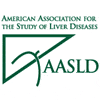 Bristol-Myers Squibb’s investigational hep C meds daclatasvir and asunaprevir have shown high cure rates among prior null-responders with difficult-to-treat strains of hepatitis C virus (HCV), BusinessWire reports. Researchers presented results from a Phase IIa study at the annual meeting of the American Association for the Study of Liver Diseases in Boston. Findings suggested that the interferon-free treatments may be tailored in ways to best fight specific genotypes of the hep C virus.
Bristol-Myers Squibb’s investigational hep C meds daclatasvir and asunaprevir have shown high cure rates among prior null-responders with difficult-to-treat strains of hepatitis C virus (HCV), BusinessWire reports. Researchers presented results from a Phase IIa study at the annual meeting of the American Association for the Study of Liver Diseases in Boston. Findings suggested that the interferon-free treatments may be tailored in ways to best fight specific genotypes of the hep C virus.
The study examined the NS5A inhibitor daclatasvir and the NS3 protease inhibitor asunaprevir as a dual therapy, as a triple therapy with the addition of ribavirin, and as a quad therapy with the addition of alfa interferon—given to patients with genotype 1 hep C who had previously failed alfa interferon plus ribavirin treatment. All treatments lasted 24 weeks.
Only genotype 1b patients received the following regimens and reached these results:
- Daclatasvir once a day plus asunaprevir twice a day: 78 percent (14 out of 18 people) achieved a sustained virologic response (SVR, considered a cure) 12 weeks after completing therapy.
- Daclatasvir and asunaprevir, both once a day: 65 percent (13/20) achieved SVR12.
A group composed of mostly genotype 1a participants, but which also included 1b patients, received the following regimens and attained these SVRs:
- Quad therapy, with the asunaprevir component taken once a day: SVR12 and SVR24 rates were 95 percent (19/20) and 90 percent (18/20) respectively.
- Quad therapy, with the asunaprevir component taken twice a day: SVR12 and SVR24 rates were both 95 percent (20/21).
A fifth treatment arm containing both genotype 1a and 1b patients received:
- A triple therapy of asunaprevir once a day, asunaprevir twice a day, plus ribavirin. Fifty-six percent of the genotype 1a patients and none of the 1b patients experienced viral breakthrough on the regimen. As a result, researchers decided not to pursue further research of this combination in genotype 1a patients.
None of the patients stopped the therapies because of side effects. The most common, across all treatment arms, were headache, diarrhea, weakness, fatigue and insomnia across. Daclatasvir is currently in Phase III development as an independent agent, and asunaprevir is in Phase III studies for use in combination with daclatasvir.
To read the BusinessWire report, click here.
To read the BMS releases, click Genotype 1b results and Quad results.






Comments
Comments